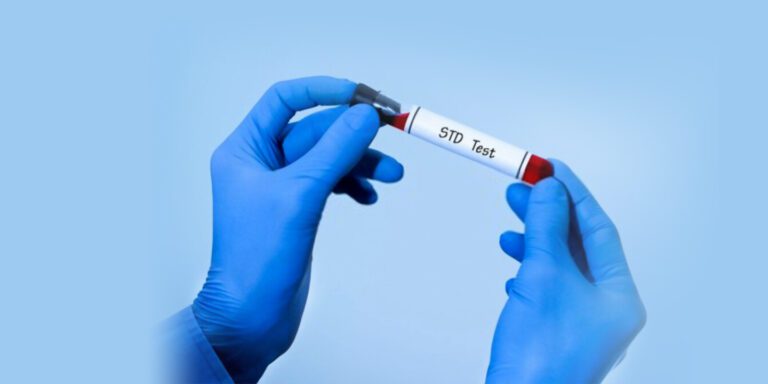Can You Get an STD From Tattoo or Piercing Equipment?
Getting a tattoo or body piercing is a form of self-expression, and many people enjoy the experience of enhancing their look with a unique design or a new piercing. However, as with any procedure that involves breaking the skin, there are potential health risks involved. One of the most significant concerns that people have is whether it’s possible to contract an STD from tattoo or piercing equipment.
If you’re considering getting a tattoo or piercing, it’s important to understand the potential risks involved. In this post, we’ll explore the relationship between tattoos, piercings, and STDs, how to prevent infections, and what to do if you’re worried about an STD after getting a tattoo or piercing. We’ll also discuss the role of STD testing in Jacksonville and how it can help protect your health.
The Risk of Contracting an STD From Tattoo Equipment
Tattoos are permanent works of art that are created by inserting ink into the skin using needles. While getting a tattoo is generally safe, there are some health risks involved, especially if the equipment used isn’t properly sanitized. One of the most serious risks is the possibility of contracting an STD from tattoo equipment.
How Can an STD Be Transmitted Through Tattoo Equipment?
STDs are transmitted through bodily fluids, and many STDs can be spread through contact with infected blood. When a needle pierces the skin to create a tattoo, it creates a small wound where blood can be drawn. If the tattoo equipment is contaminated with infected blood, it is possible to contract an STD.
For example, if the needle used to apply the tattoo has come into contact with the blood of an infected person, the next person who uses that needle could be exposed to the virus or bacteria. This is why it’s crucial for tattoo studios to follow strict hygiene and sanitation protocols.
Which STDs Are a Concern?
Some of the most common STDs that can be transmitted through contaminated tattoo equipment include:
- HIV: The human immunodeficiency virus (HIV) can be transmitted through blood. If tattoo needles or other equipment are contaminated with the blood of someone who has HIV, there is a risk of transmission.
- Hepatitis B and C: Hepatitis is a viral infection that can lead to severe liver damage. Both Hepatitis B and C can be transmitted through blood. If tattoo equipment isn’t properly sanitized, there is a risk of transmitting these infections.
- Syphilis: This bacterial infection can be transmitted through direct contact with sores or lesions, including those that may be present in a tattoo area.
While it is relatively rare to contract an STD from tattoo equipment, the risk is still present, especially if the equipment is not properly sterilized or if you go to an unlicensed or unregulated tattoo parlor.
How to Protect Yourself from Getting an STD From Tattoo Equipment
To reduce your risk of contracting an STD from tattoo equipment, it’s important to choose a reputable tattoo studio that follows strict hygiene and sanitation practices. Some safety measures that tattoo studios should follow include:
- Single-use needles and equipment: Needles and other tattooing equipment should be disposable and used only once. Reusing needles or other equipment increases the risk of cross-contamination.
- Proper sterilization: All reusable equipment, such as tattoo machines and trays, should be sterilized between each use. This helps ensure that no bacteria or viruses are transferred from one client to another.
- Clean and sanitary environment: The tattoo studio should be clean and free from contamination. Artists should wear gloves, and all surfaces should be disinfected regularly.
- Licensed and trained tattoo artists: Make sure the tattoo artist is licensed and has received proper training in infection control and hygiene.
If you’re unsure about the studio’s cleanliness or safety practices, don’t be afraid to ask questions. A reputable studio will be happy to explain their sterilization process and show you their certification.
The Risk of Contracting an STD From Piercing Equipment
Body piercings are another popular way to adorn your body, but just like tattoos, they come with a potential risk of infection. Piercing involves creating a hole in the skin with a needle or other piercing tool. While the risk of contracting an STD from piercing equipment is low, it’s still important to be aware of the potential dangers.
How Can an STD Be Transmitted Through Piercing Equipment?
Similar to tattoos, piercings create an open wound in the skin. If the equipment used to create the piercing is contaminated with infected blood or bodily fluids, there is a risk of transmitting an STD. However, the risk of contracting an STD from piercing equipment is much lower than from tattoos because the equipment used in piercings is often disposable and less likely to come into contact with blood compared to tattoo needles.
Which STDs Can Be Spread Through Piercing Equipment?
The same STDs that can be transmitted through tattoo equipment can also be spread through piercing equipment, although the chances are significantly lower. These include:
- HIV: While rare, HIV can be transmitted through contaminated piercing equipment that has been exposed to the blood of an infected person.
- Hepatitis B and C: Hepatitis can also be transmitted through blood contact. If the piercing needle or jewelry is contaminated, the virus can be passed along.
- Syphilis: This bacterial infection can be spread through direct contact with infected sores or lesions, including those on the skin where a piercing is made.
To avoid contracting an STD from piercing equipment, it’s important to follow the same precautions as you would with tattoos, ensuring that the studio follows strict sanitation procedures and uses disposable equipment.
How to Protect Yourself from Getting an STD From Piercing Equipment
When getting a piercing, it’s important to choose a reputable piercing studio that follows proper sanitation protocols. Some safety measures that piercing studios should follow include:
- Single-use, disposable needles: Needles should be used only once and then discarded to prevent cross-contamination.
- Proper sterilization of reusable tools: All tools, such as forceps or jewelry insertion tools, should be properly sterilized between uses.
- Clean environment: The piercing studio should be clean, and artists should wear gloves and follow proper hygiene practices.
- Trained and licensed piercers: Ensure that your piercer is licensed and trained in infection control and hygiene.
Just like with tattoos, don’t hesitate to ask the piercing studio about their sterilization and sanitation processes. A professional studio will prioritize your health and safety and will be happy to provide you with the information you need.
Protecting Your Health After a Tattoo or Piercing
If you’re concerned about the possibility of contracting an STD from tattoo or piercing equipment, it’s important to know that you can take steps to protect your health. One of the best ways to do this is by getting regular STD testing.
In Jacksonville, there are many healthcare providers who offer confidential testing. Hope Across The Globe is one of the organizations dedicated to helping individuals protect their health and well-being by offering accessible and affordable STD testing services. Regular testing is especially important if you’re sexually active, as it helps catch infections early, before they cause serious health problems.
Why Is Testing Important?
Even if you follow all the safety precautions, it’s still possible to contract an STD. Testing is important because many STDs don’t show symptoms right away, and some may not show any symptoms at all. Early detection is key to preventing the spread of STDs and managing any potential health problems.
How Can Testing Help?
If you’re worried about having contracted an STD from tattoo or piercing equipment, STD testing in Jacksonville can give you peace of mind. Testing can detect a wide range of STDs, including HIV, Hepatitis B and C, syphilis, and others. It’s a simple process that can help you stay on top of your health.
Hope Across The Globe offers a variety of STD testing options that can be customized to your needs. Whether you’re looking for routine testing or need to address a specific concern, their team is ready to assist you.
Conclusion
While the risk of contracting an STD from tattoo or piercing equipment is relatively low, it’s not something to take lightly. It’s essential to choose a reputable studio that follows strict hygiene and sanitation practices to protect yourself and others. Additionally, regular STD testing in Jacksonville can give you peace of mind and ensure that you’re staying on top of your health. By taking the proper precautions, you can enjoy your new tattoo or piercing without worrying about potential health risks.






